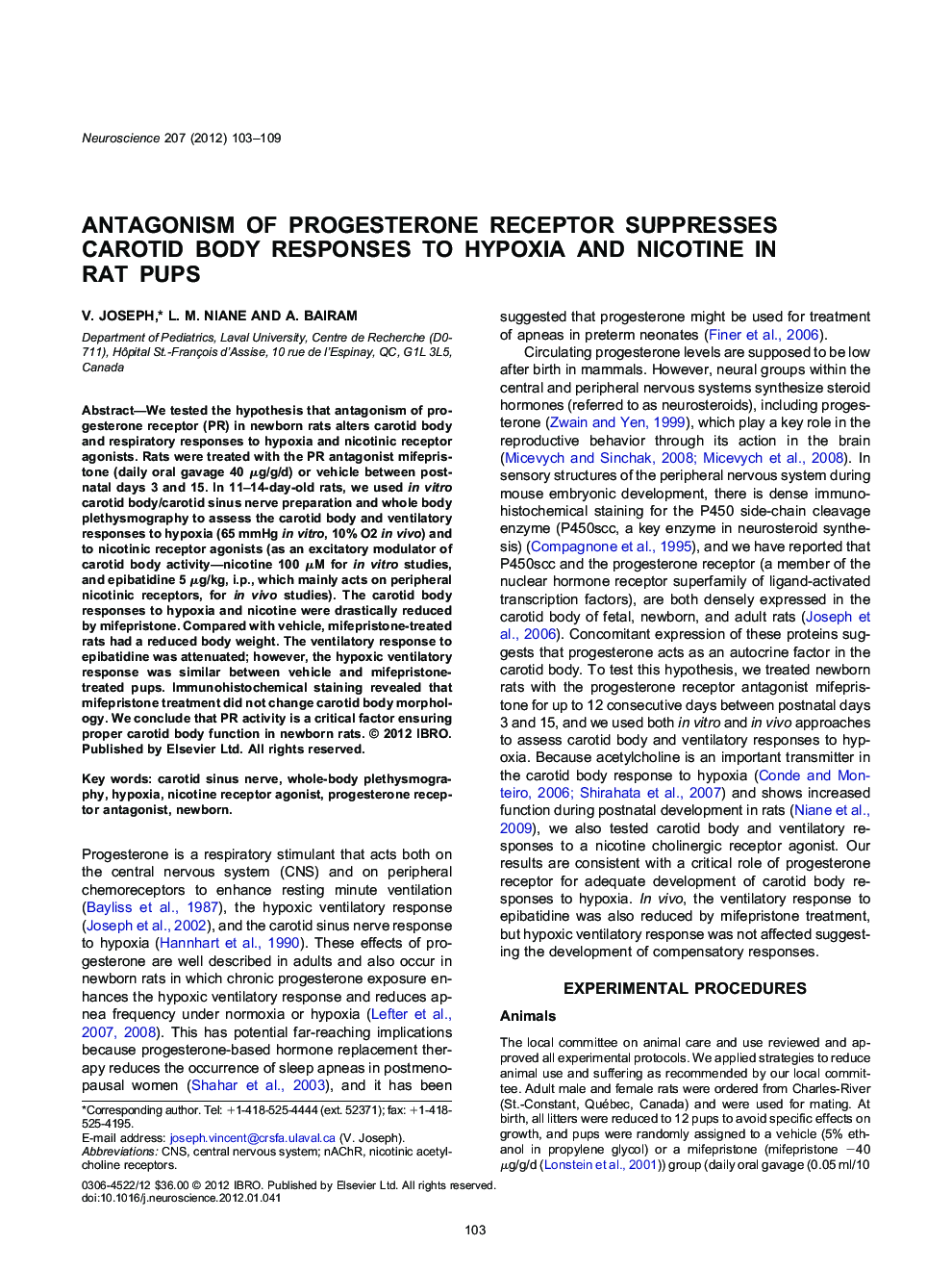| Article ID | Journal | Published Year | Pages | File Type |
|---|---|---|---|---|
| 4338580 | Neuroscience | 2012 | 7 Pages |
We tested the hypothesis that antagonism of progesterone receptor (PR) in newborn rats alters carotid body and respiratory responses to hypoxia and nicotinic receptor agonists. Rats were treated with the PR antagonist mifepristone (daily oral gavage 40 μg/g/d) or vehicle between postnatal days 3 and 15. In 11–14-day-old rats, we used in vitro carotid body/carotid sinus nerve preparation and whole body plethysmography to assess the carotid body and ventilatory responses to hypoxia (65 mmHg in vitro, 10% O2 in vivo) and to nicotinic receptor agonists (as an excitatory modulator of carotid body activity—nicotine 100 μM for in vitro studies, and epibatidine 5 μg/kg, i.p., which mainly acts on peripheral nicotinic receptors, for in vivo studies). The carotid body responses to hypoxia and nicotine were drastically reduced by mifepristone. Compared with vehicle, mifepristone-treated rats had a reduced body weight. The ventilatory response to epibatidine was attenuated; however, the hypoxic ventilatory response was similar between vehicle and mifepristone-treated pups. Immunohistochemical staining revealed that mifepristone treatment did not change carotid body morphology. We conclude that PR activity is a critical factor ensuring proper carotid body function in newborn rats.
▶Rat pups were treated daily with a progesterone receptor antagonist. ▶Carotid body response to hypoxia measured in vitro was reduced in treated pups. ▶Carotid body response to nicotine superfusion in vitro was reduced in treated pups. ▶Ventilatory response to hypoxia in awake pups was not affected. ▶Ventilatory response to a nicotinic agonist in awake pups was reduced.
